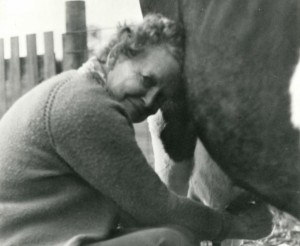Government regs can spoil the milk

By Scott Reeder
SPRINGFIELD – My grandma liked her milk just like her orange juice – freshly squeezed.
To hear her talk, raw milk was wonderful.
And her view is now shared by many of today’s urban “foodies” who say raw milk tastes better, is richer in nutrients and can help prevent certain diseases.
In fact, the consumption of raw milk has become so popular, legislation has been introduced to ban its sale within Illinois.
Yes, you read that right.
More people are drinking it, so state Rep. Dan Burke, D-Chicago, has introduced a bill to have it banned.
Right now, raw milk only can be bought in Illinois if it is done directly from a farmer.
Still, some view it as a health risk.
Certain diseases can be spread through raw milk. For example, if the milk comes from a cow infected with brucellosis, a human consuming it can develop undulant fever, which can result in several weeks of severe flu-like symptoms.
But raw-milk advocates say such ailments from consuming unpasteurized dairy products are rare.
SHE LIKES IT FRESH: Wanda Beckerdite, the author’s grandmother, milks her cow, BB, near the Schuyler County hamlet of Brooklyn, Ill., in the late 1970s.
Pasteurization consists of heating milk to kill bacteria. But raw milk promoters say it also kills or damages the nutrients, and many say milk tastes richer and creamier unpasteurized.
I’m sorry, I think raw milk is just plain gross.
You see, raw milk doesn’t look much like store-bought milk.
It sometimes can have a bit of a yellow cast to it and fat globules rise to the top making the milk, well, lumpy.
But every morning and evening my grandmother would head out to the pasture and milk her pet Holstein named “BB.”
Cats from across the neighborhood would come running and she’d ladle out milk for them to lap up.
Then she’d bring the bucket into the house and refrigerate it.
The cream would separate from the milk and she would skim it away and make butter and ice cream.
She and my grandpa would consume the remainder themselves because Lord knows this grandchild wouldn’t touch it.
After all, who wants to drink lumpy milk?
The home churned butter didn’t look any more store-bought than the milk.
Instead of having sticks or tubs of butter like you can get at the supermarket, grandma produced these giant globs that looked like bright yellow hedge balls.
But they tasted OK, although they looked a bit menacing, at least in the eyes of a 10-year-old staring across the dinner table.
But grandma’s ice cream was divine – better than anything I ever had before or since.
“There are risks to eating any type of food – including raw milk. But we are not seeking to have it sold at every supermarket. We want it sold at health food stores and at farms to discerning, informed consumers,” said Kimberly Hartke, spokeswoman for the Weston Price Foundation, a national advocacy group for raw milk.
The Price Foundation says raw milk, which can be sold legally in about half the states, helps boost people’s immune system and makes them less likely to develop asthma and allergies.
But public health advocates say contaminated raw milk can make people sick and that’s why it should be outlawed.
This of course raises the question of the role of government in our society.
I don’t drink alcohol or smoke cigarettes, but I’m certainly no prohibitionist. I believe folks should be able to make wise – or unwise – informed decisions for themselves.
The same goes for a product such as raw milk.
It’s certainly not my cup of cream.
But we can’t go through life covered in bubble wrap. Government can’t always decide what it thinks is best for us.
We ought to be free to choose.
Scott Reeder is a veteran statehouse reporter and the journalist in residence at the Illinois Policy Institute. He can be reached at sreeder@illinoispolicy.org. Readers can subscribe to his free political newsletter by going to ILNEWS.ORG or follow his work on Twitter @scottreeder







